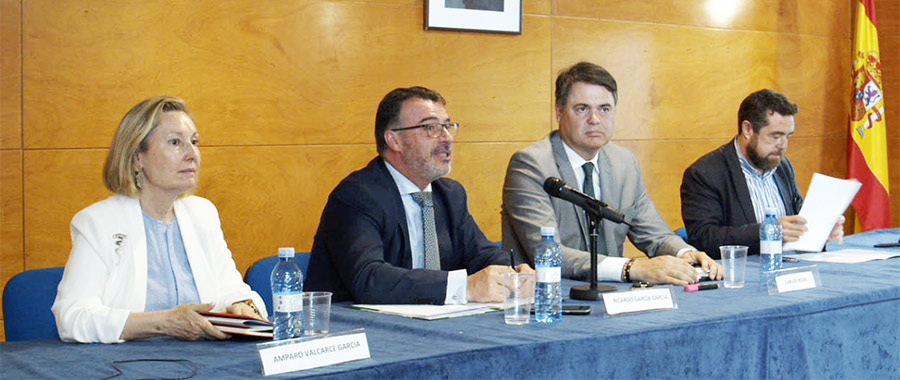In recent years, Spain has emerged as a focal point for discourses surrounding the prevention of violent radicalization. This is not merely an academic discussion but a visceral need underscored by pressing socio-political realities. The Bahá’í teachings provide profound insights and paradigms that could engender transformative approaches to this pervasive issue, promising a paradigm shift in how societies understand and address radicalization.
To embark on this exploration, it is crucial to delineate the context within which the radicalization phenomenon operates. Violent radicalization is often propelled by a mélange of social, political, and economic grievances. In Spain, a nation marked by its rich tapestry of cultures and histories, these grievances manifest uniquely—particularly in the context of its complex relationship with immigration, identity, and historical narratives. The underlying socioeconomic disparities, paired with the historical legacies of colonialism and conflict, contribute to fertile ground for extremist ideologies to take root.
The Bahá’í teachings advocate for the oneness of humanity, emphasizing that all people are interconnected and that prejudice in any form is an affront to the inherent dignity of the human soul. This foundational concept is pivotal in reframing the conversation around radicalization. Rather than viewing individuals engaged in radical activities as mere perpetrators of violence, it becomes imperative to understand the socio-economic and psychological contexts that lie beneath such actions. This shift in perspective invites a more empathetic approach, one that seeks solutions rather than punishment.
Furthermore, a closer examination reveals that the Bahá’í principles of unity and cooperation can serve as salient guides in addressing the root causes of violent radicalization. By fostering dialogues that bridge cultural and ideological divides, communities can cultivate a shared understanding—a fundamental step toward preventing alienation and fragmentation. The Bahá’í community encourages collaborative efforts that involve individuals from diverse backgrounds, thereby enriching the narrative surrounding integration and societal cohesion.
The role of education in this context cannot be overstated. Education, as espoused in Bahá’í teachings, is not merely about imparting knowledge, but rather about cultivating virtues and equipping individuals with the tools to navigate complex realities. In Spain, educational programs that incorporate Bahá’í principles can play an instrumental role in instilling values of tolerance, empathy, and critical thinking among younger generations. By empowering youth to engage with differing perspectives and challenging extremist ideologies, the seeds of resilience against radicalization are sown.
Moreover, the emphasis on consultation within the Bahá’í community offers an innovative approach to conflict resolution. By engaging stakeholders in a process that values consensus over confrontation, communities can develop collective strategies to address grievances, thus diminishing the allure of radical voices. This model of collaborative decision-making fosters a sense of agency among individuals, leading to more sustainable solutions to social discord.
In addition, the Bahá’í teachings illuminate the significance of spiritual development in combating radicalization. A spiritually nurtured individual is less susceptible to extremist propaganda that exploits feelings of disenfranchisement. Promoting spiritual education and personal development programs can empower individuals to forge a resilient identity that is not predicated on division or hostility. Initiatives aimed at enhancing spiritual understanding can serve as bulwarks against the temptations posed by violent ideologies.
The interplay between socioeconomic factors and radicalization necessitates a holistic approach. The Bahá’í teachings advocate for a comprehensive understanding of poverty, inequality, and social injustice, arguing that addressing these conditions is vital for thwarting the emergence of extremist sentiments. Hence, a multifaceted strategy that combines educational outreach, community-building, and economic empowerment can yield tangible benefits in preventing radicalization.
In Spain’s growing conversation around violent radicalization, grassroots initiatives inspired by Bahá’í principles offer promising avenues for intervention. These initiatives can include interfaith dialogues that emphasize commonalities rather than differences, cultural exchanges that enrich mutual respect, and community service projects that build solidarity among diverse populations. Such collaborative endeavors embark on the noble pursuit of creating inclusive societies that are resilient to divisive ideologies.
As Spain navigates its complexities, the integration of Bahá’í teachings into public discourse presents a refreshing perspective. The collective insights of this spiritual tradition encourage vigilance against division, fostering instead a vision of unity. The potential for transformation lies in collaborative efforts fueled by compassion, understanding, and respect for human dignity. Ultimately, the conversation surrounding the prevention of violent radicalization in Spain can transcend mere rhetoric, guided by the Bahá’í ethos toward meaningful, lasting change.
The pressing need for dialogue and action against violent radicalization mandates innovative strategies—ones that prioritize understanding, education, and unity. In pursuit of such strategies, the Bahá’í teachings stand as a beacon, illuminating pathways toward a society resilient to extremism, enriched by diversity, and committed to the shared welfare of all its members. The ongoing discourse in Spain represents not just a national challenge, but a global imperative, beckoning the attention and participation of all who value peace and coexistence.
